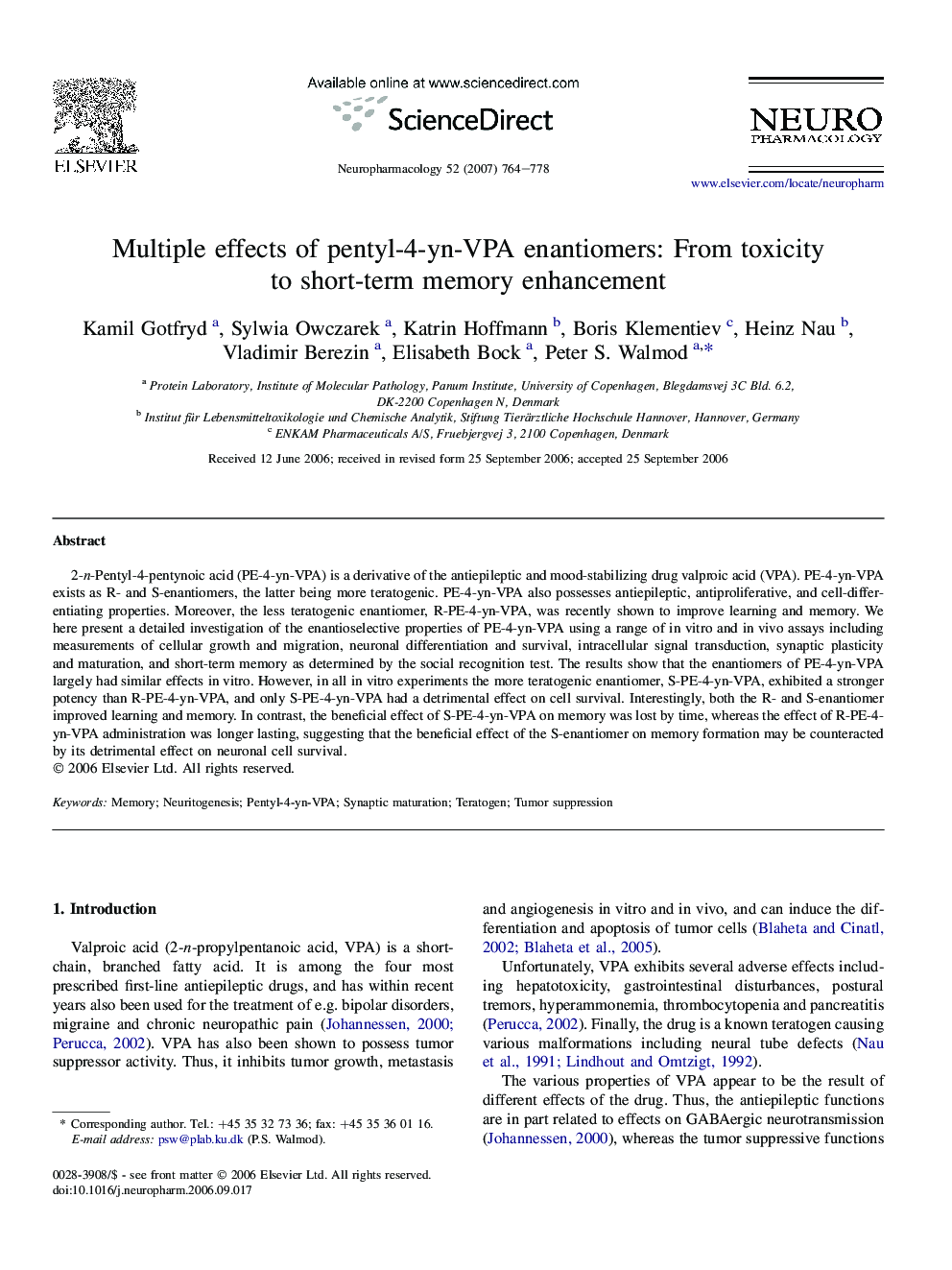| Article ID | Journal | Published Year | Pages | File Type |
|---|---|---|---|---|
| 2495310 | Neuropharmacology | 2007 | 15 Pages |
2-n-Pentyl-4-pentynoic acid (PE-4-yn-VPA) is a derivative of the antiepileptic and mood-stabilizing drug valproic acid (VPA). PE-4-yn-VPA exists as R- and S-enantiomers, the latter being more teratogenic. PE-4-yn-VPA also possesses antiepileptic, antiproliferative, and cell-differentiating properties. Moreover, the less teratogenic enantiomer, R-PE-4-yn-VPA, was recently shown to improve learning and memory. We here present a detailed investigation of the enantioselective properties of PE-4-yn-VPA using a range of in vitro and in vivo assays including measurements of cellular growth and migration, neuronal differentiation and survival, intracellular signal transduction, synaptic plasticity and maturation, and short-term memory as determined by the social recognition test. The results show that the enantiomers of PE-4-yn-VPA largely had similar effects in vitro. However, in all in vitro experiments the more teratogenic enantiomer, S-PE-4-yn-VPA, exhibited a stronger potency than R-PE-4-yn-VPA, and only S-PE-4-yn-VPA had a detrimental effect on cell survival. Interestingly, both the R- and S-enantiomer improved learning and memory. In contrast, the beneficial effect of S-PE-4-yn-VPA on memory was lost by time, whereas the effect of R-PE-4-yn-VPA administration was longer lasting, suggesting that the beneficial effect of the S-enantiomer on memory formation may be counteracted by its detrimental effect on neuronal cell survival.
